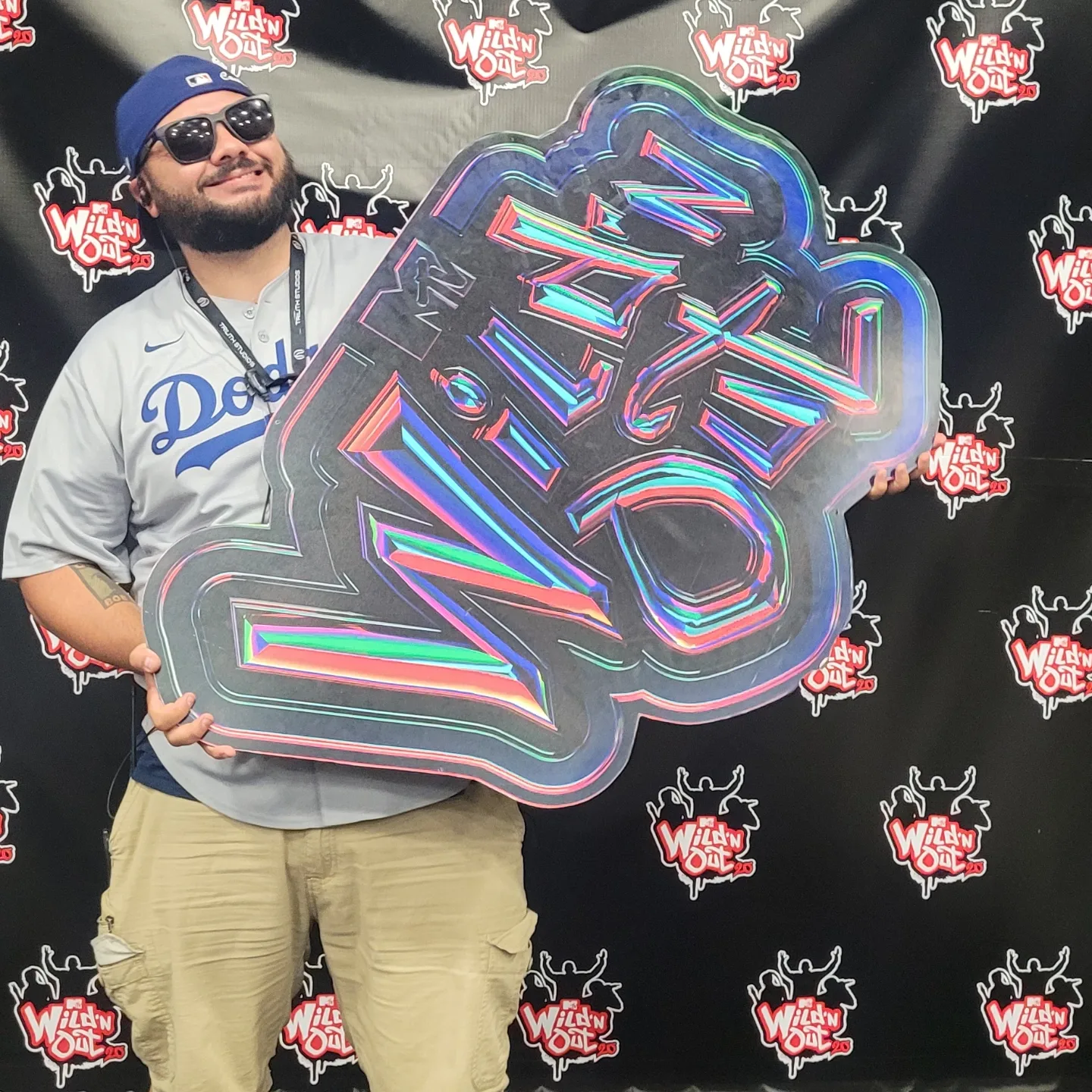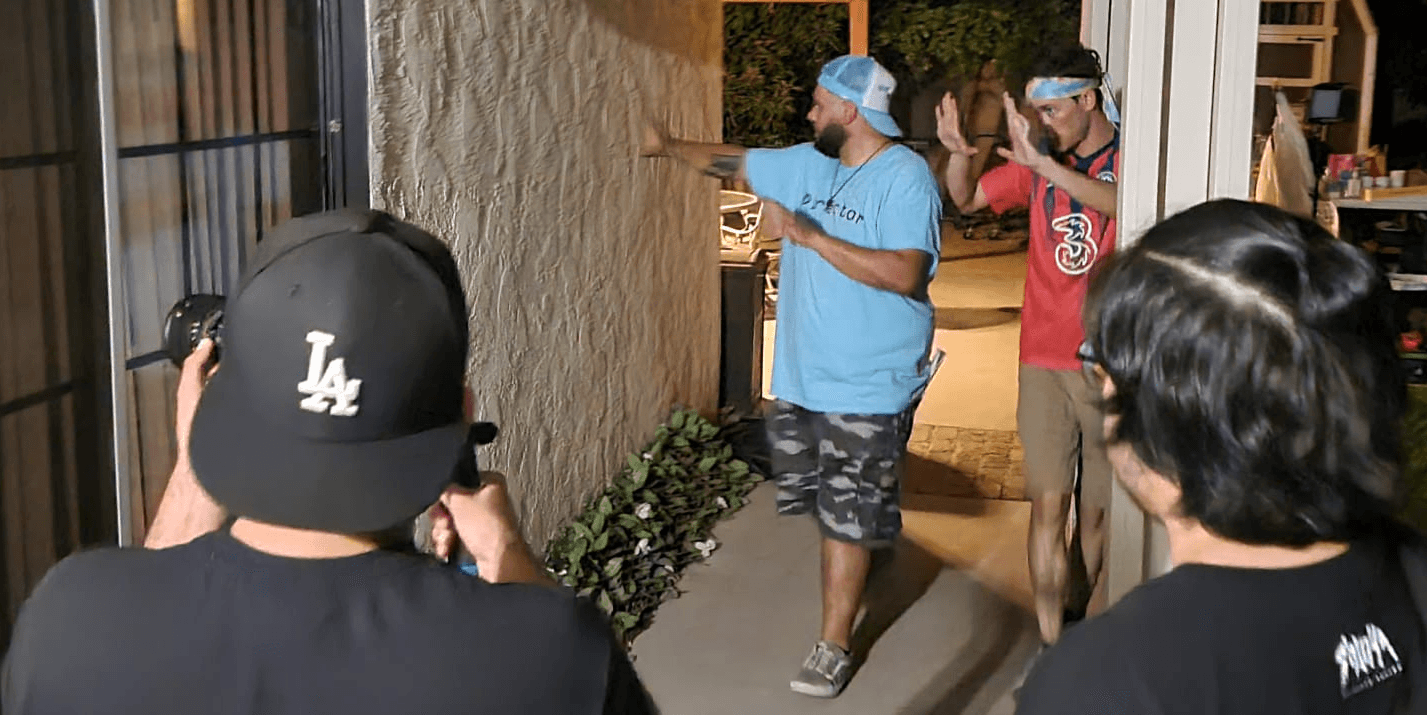Alright – so today we’ve got the honor of introducing you to Michael Contreras. We think you’ll enjoy our conversation, we’ve shared it below.
Michael, appreciate you joining us today. Can you talk to us about how you learned to do what you do?
I learned how to be a filmmaker, photographer, and technician by consistently putting myself in situations where I could get the most exposure to production work. Learning hands-on has been the best learning method for me, allowing me to get a unique the experience to operate equipment and learn from a live or mock live set. My number one setback was being to hesitant to start taking media classes & not applying for production assistant work right after high school. On the other hand, those experiences helped me find myself and realize that working in film, tv, and live events are what I have a passion for.
The most essential skills to learning my craft comes down to my acquired patience and passion. I had to focus on my patience from start to finish in order to be successful as a freelancer, working for myself. On the other hand, my passion for what I do is what drives my motivation and the need to succeed. I have worked many jobs and out of all of them, nothing compares to freelancing in the entertainment industries. It’s a unique career path, but I almost feel a calling to it and that ultimately keeps me going to continue to learn more in-depth about my craft and the craft of those that I work alongside.
Time is the main obstacle that stood in the way of my ability to learn more. I wasted a good amount of my time focused on a medical career that I wasn’t going to be happy in, working multiple 40hr/wk. jobs with no room to promote, not focusing on a craft that has been a relevant part of my life, and putting my priorities into partying over my craft and skills. These obstacles forced me to change my lifestyle and focus my energy into advancing in career paths that I strongly wanted to succeed in.

Great, appreciate you sharing that with us. Before we ask you to share more of your insights, can you take a moment to introduce yourself and how you got to where you are today to our readers.
Hello! My name is Michael Contreras. I am an award winning Chicano filmmaker and photographer from the Inland Empire, California. I am a co-founder of Root 66 Films, an active member of the group Phase 3 films, owner of ProdWear designs, and soon to be owner of my fine art photography company.
My start in entertainment began in elementary, where I performed in various plays until 12 years old when I became a columnist for two local community newspapers, the Colton Courier & El Chicano. As a student columnist I wrote articles on local legends from the area, local sports, and current events around the community. My time as a writer ended after entering high school, but then I started announcing and scorekeeping for the local little league’s. For 2 years I would play music to the stands and announce games like like I was Vin Scully. While a sophomore in high school, I started volunteering at the city of San Bernardino’s local T.V. station, KCSB tv 3. As an affiliate studio of PBS, KCSB gave me tons of exposure to working in a live studio as a camera operator, lighting assistant, sound engineer, teleprompter operator, and technical director. I continued this work until I was 18, when I became a freelance studio technician for KCSB. I left the studio when the station manager & my first mentor, Mr. Mansie Booker, retired and picked up work with his own production company. I worked as a camera operator for 8 years with him until his untimely death. I learned a lot from Mr. Booker about how to be a great production tech, an excellent camera operator, an amazing director, and and overall good human being who valued morals. Work was good, consistent through the year, but that all changed when Mr. Booker had his untimely passing.
After high school I became a promotions intern for a non-corporate radio station known as the “X’. My internship lasted 3 years and I learned a lot about the business of professional entertainment. While in promotions I learned how the sales and creative teams worked in unison with one another to establish the needs to keep a radio company running. 1 year in and I quickly rose to DJ assistant & lead intern where I worked in studio, at concerts, and at exclusive promotional events.
When the recession hit, I left working in entertainment and started various work in multiple 9-5 jobs where I struggled to find work at my age, with the experience I’ve acquired. It was hard to find work for a 20 year old who had all this supposed work experience and now no one to vouch for it. That’s when I decided to attend film, tv, and media classes at San Bernardino Valley College. I took every class in the FTVM department and quickly rose above my peers, becoming a department intern for my remaining time as a student.
School was a bit backwards for me, I started by taking every class I could that the media department had to offer, and then I was going to take my gen eds to get my degrees. I finished every class offered, but unfortunately Covid hit before I could finish my pre-requisites. My professor at SBVC, Lucas Cuny, helped me during this time by giving my name out to Paramount Global who were looking for paid production assistants for the show Nick Cannon presents Wild’n’Out. I was selected to be a PA and that was the official start of my career in the industry. Since then I have promoted my way and worked as transportation coordinator for Wild’n’Out, MTV VMA’s, CMTA’s, and the recently released Mr. Beasts, Beastgames. I have worked as a Production Assistant for The Food Network, A&E, Paramount, FOX, BET, and Disney. Aside from the industry work, my previous experience helped me obtain current work as a director on multi-camera, live event productions.
I am definitely proud of the journey that I have taken to get me to where I am. Sure there are things I wish I did differently or focused my attention on more of when I was younger, but my early experiences are the building blocks to help me as my career continues to advance in a field I am drawn to and happy to be apart of.

Have you ever had to pivot?
While finishing film school, I worked a full-time job with a company that helped adults with disabilities find and maintain a job in the workforce. Unfortunately I lost my position due to cuts and then COVID arrived. Covid made it made it tough to complete my pre-req’s & find work with a steady income. I landed a job as a part time Audio Visual Technician for Hilton Worldwide, and that gave me full time hours for about half of a year and then part time or no hours the other half. The job was more seasonal and that only brought more of a burden to me financially, but my time spent at film school was about to pay off in ways I never thought.
Struggling to find work and take online classes, I was pulled from a select group of students to work as a paid production assistant on Season 16 of MTV’s Nick Canon Present’s Wild’n’Out. This kept me employed for a little over 2 months with them and gave me a first hand experience to working on an unscripted television set. I worked hard, gave my dedication, and learned from my peers & supervisors about how production flows and how to start getting steady work. I applied some of what I learned in school to what I was taught on set and thus began my interest in pursuing work as a freelancer in film, tv, and live event production. After working a year in production I was confident in my ability to find consistent work and wrote a letter of resignation to Hilton Worldwide. The reaction to my resignation ended in Hilton hiring me on as an on-call AV technician, allowing me to continue to pursue freelance work and AV work.
Taking that step into freelancing was like walking into an empty dark void and I had no idea what to expect or if I would even find work right away. That thought process resonated with me for 2 whole weeks until I started getting call backs and started getting hired onto more PA gigs. Wild’n’Out reached back out a year later and hired me as a PA, along with getting me lodging to work in New Jersey for just under 2 months. Since my pivot into freelancing, I ended up working with Fox networks, Disney, ESPN, & The Food Network. I also promoted to transportation coordinator for 4 more seasons on Wild’n’Out, which helped me obtain more coordinator roles with the VMA’s and CMTA’s. Aside from coordinating, I also took on various roles with other production companies as camera operator, multi-cam director, production coordinator, assistant director, and associate producer.

Do you have any insights you can share related to maintaining high team morale?
When I take on roles that require me to be in a leadership or management position; I lean on a lot on my past experiences, leadership training, and mentors.
As a leader/manager my first objective is to create and establish a workable atmosphere for all of our crew and members. My goal is to start the team building process and set clear & concise expectations for every workday assigned to our production. I took leadership classes in ROTC and grew up with many friends and family who served in the military and taught me valuable leadership lessons. While establishing an atmosphere for your crew, you should also start to implement discussions on the goals for the crew regarding job completion. I like to conclude my introductions with informing my crew that I used to be where they were at one point and that as a leader, I would never send them to complete a task that I wouldn’t do myself. This helps to start and establish trust, which can be essential when dealing with problematic individuals or situations that involve myself and/or a member of my crew.
Morale comes with being able to balance the strictness of leadership and the enthusiasm that resonates through your crew. As a manager, it helps to connect to your crew through various activities or discussions. For instance, I like to celebrate with my crews after major accomplishments and also initiate those hard talks when things don’t go as planned. Everything from fires, conflicting ideas, and how you handle crew with disagreements will all play a part in how you are viewed as a manager & can dictate whether the team morale is weakened or strengthened over the time of production. A good rule to live by when managing production work is to learn your crews strengths and weakness. Identify your crew members who have a personality that is welcoming, hard working, and gets along well with the rest of the team, they can be the “heart” of your crew and a key to your success as a leader.
Contact Info:
- Website: https://prodwear.org
- Instagram: https://instagram.com/ie_photographer
- Linkedin: https://www.linkedin.com/in/michael-contreras-b93542178/details/featured/
- Youtube: https://www.youtube.com/@Root66Films_IE
- Other: For those wanting to network please email me at: [email protected]



Image Credits
Images/Photos by Root 66 Film & Michael Contreras Photography


